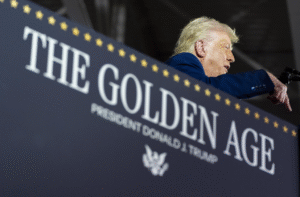Walmart Boycott: Walmart Faces Nationwide Boycott Over DEI Rollbacks: Consumer Backlash Intensifies
Walmart is currently under intense scrutiny as consumers across the United States initiate a week-long boycott in response to the company’s decision to scale back its Diversity, Equity, and Inclusion (DEI) initiatives. The boycott, organized by The People’s Union USA, runs from May 20 to May 26, 2025, and targets not only Walmart but also its subsidiaries, including Sam’s Club and Walmart+.
The Catalyst: Walmart’s DEI Policy Reversal
In November 2024, Walmart announced a significant shift in its corporate policies by ending its DEI programs. This included winding down the Center for Racial Equity, a nonprofit initiative the company had founded, and ceasing participation in the Human Rights Campaign’s Corporate Equality Index. The move was part of a broader trend among major corporations reevaluating their DEI commitments amid changing political climates.
The rollback has been met with criticism from various stakeholders, including shareholders and Democratic officials, who argue that such actions undermine efforts to promote inclusivity and equity within the workplace.
The People’s Union USA: Leading the Charge
The current boycott is spearheaded by The People’s Union USA, a grassroots advocacy group that previously organized a one-day economic blackout on February 28, 2025. The organization’s founder, John Schwarz, has been vocal about the need to hold corporations accountable for policies that he perceives as detrimental to social progress.
In a recent statement, Schwarz criticized Walmart for prioritizing profits over people, stating, “After all the record profits, all the tax loopholes, all the corporate greed, Walmart now once again wants to raise prices… as if they’re not already raking in billions.”
Broader Implications: A Trend Among Retail Giants
Walmart is not alone in facing backlash over DEI policy changes. Target, another major retailer, has also experienced a decline in sales attributed to consumer boycotts following its decision to scale back DEI programs. The company reported a 3.8% drop in comparable sales, surpassing analysts’ expectations.
These developments highlight a growing consumer movement that demands corporate accountability and a commitment to social responsibility. Companies that fail to uphold these values risk not only reputational damage but also financial repercussions.
Walmart’s Response: Defending Corporate Practices
In response to the boycott, Walmart has defended its corporate practices, emphasizing its contributions to the economy and communities. A company spokesperson stated, “As one of the largest corporate taxpayers in the country, not only do we pay our fair share, we are an economic force multiplier strengthening communities nationwide through job creation, supplier growth, and over $1.7 billion in cash and in-kind donations last year.” (The US Sun)
Despite these assertions, critics argue that such contributions do not absolve the company from the responsibility of fostering an inclusive and equitable work environment.
The Road Ahead: Potential Outcomes and Corporate Accountability
The ongoing boycott raises questions about the effectiveness of consumer activism in influencing corporate policies. While it is too early to determine the long-term impact on Walmart’s financial performance, the situation underscores the importance of aligning business practices with societal expectations.
As consumers become increasingly aware of corporate actions, companies may need to reassess their strategies to maintain public trust and loyalty. The Walmart boycott serves as a reminder that in today’s interconnected world, corporate decisions are subject to public scrutiny and can have far-reaching consequences. (New York Post)
Conclusion
The Walmart boycott over DEI rollbacks represents a significant moment in the ongoing dialogue about corporate responsibility and social justice. As consumers leverage their purchasing power to advocate for change, businesses are compelled to consider the broader implications of their policies. The outcome of this boycott may well influence how corporations approach diversity and inclusion initiatives in the future.
Subscribe to trusted news sites like USnewsSphere.com for continuous updates.
[USnewsSphere.com / et.]





